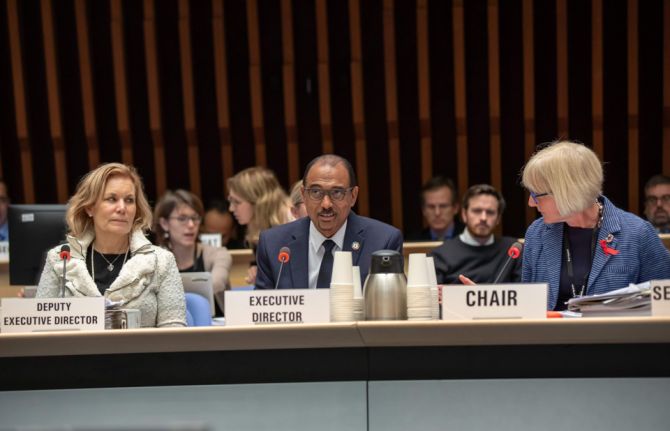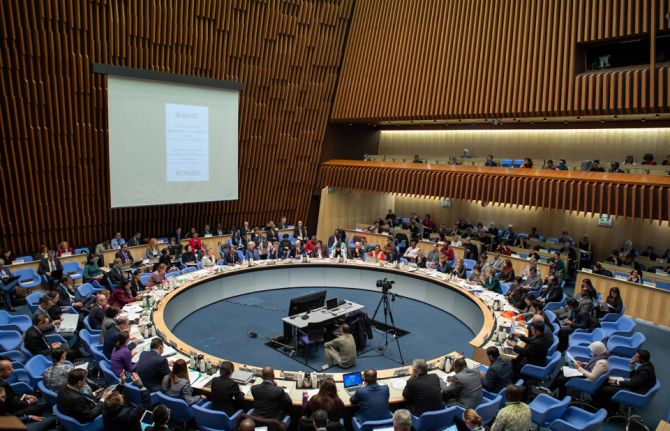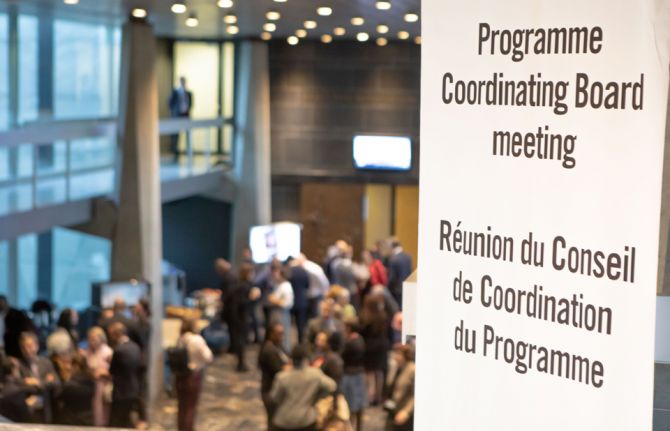



Press Release
UNAIDS Board calls for immediate implementation of UNAIDS agenda for change
13 December 2018 13 December 2018GENEVA, 13 December 2018—The UNAIDS Programme Coordinating Board (PCB) has called on UNAIDS to fully implement the management response (UNAIDS agenda for change) to address harassment, including sexual harassment, bullying and abuse of power, at the UNAIDS Secretariat which was presented to Board members by the Executive Director of UNAIDS on Tuesday 11 December.
The decision was agreed by the members of the PCB at the conclusion of the 43rd meeting of the PCB in Geneva, Switzerland, today. The PCB agreed to establish a working group to oversee the immediate implementation of the management response and to discuss the report of the Independent Expert Panel in a special PCB meeting before March 2019. The PCB also welcomed the statement of the UNAIDS Secretariat Staff Association and the critical role they played in bringing to the PCB’s attention the issue of harassment at the workplace.
“We don’t have a moment to lose in moving forward our management response. Our actions will make UNAIDS stronger and better,” said Michel Sidibé, Executive Director of UNAIDS. “I look forward to working with all staff to make UNAIDS a model workplace for staff in all their diversity. I look forward to an inclusive, transparent and open dialogue and collaboration with staff in shaping a new UNAIDS.”
The Executive Director of UNAIDS also told the PCB that he wanted to have an orderly transition of leadership at UNAIDS in the final year of his term. He informed the UNAIDS Board that its meeting in June 2019 would be his last Board meeting and he would complete his duties at the end of June 2019.
“I am proud of the successes of UNAIDS. In the past 10 years we have been instrumental in saving millions of lives and averting millions of new HIV infections. The staff of UNAIDS are our greatest asset and I am privileged to serve alongside them,” said Mr Sidibé. “I will work to ensure a smooth transition and pledge to keep my focus on our staff and delivering results for the people we serve."
UNAIDS’ agenda for change will be critical in ensuring that the staff of UNAIDS can continue to build on these successes and deliver maximum results for people living with and affected by HIV. It focuses on five action areas: a staff-centred approach, compliance and standards, leadership and governance, management and capacity. Each area outlines key actions that the UNAIDS Secretariat will undertake.
UNAIDS reiterates its commitment to lead by example in eliminating all forms of harassment, bullying and abuse of power by creating a respectful, transparent and accountable environment that enables all staff to contribute their full potential to deliver for the people they serve.
UNAIDS
The Joint United Nations Programme on HIV/AIDS (UNAIDS) leads and inspires the world to achieve its shared vision of zero new HIV infections, zero discrimination and zero AIDS-related deaths. UNAIDS unites the efforts of 11 UN organizations—UNHCR, UNICEF, WFP, UNDP, UNFPA, UNODC, UN Women, ILO, UNESCO, WHO and the World Bank—and works closely with global and national partners towards ending the AIDS epidemic by 2030 as part of the Sustainable Development Goals. Learn more at unaids.org and connect with us on Facebook, Twitter, Instagram and YouTube.
